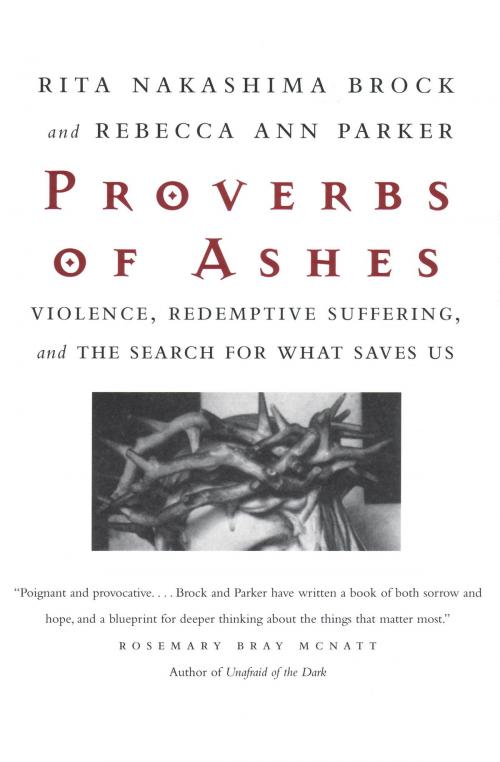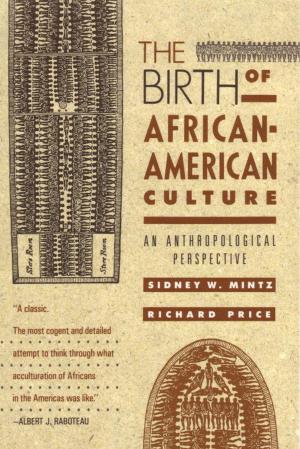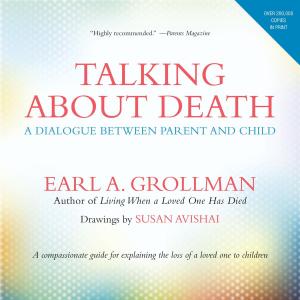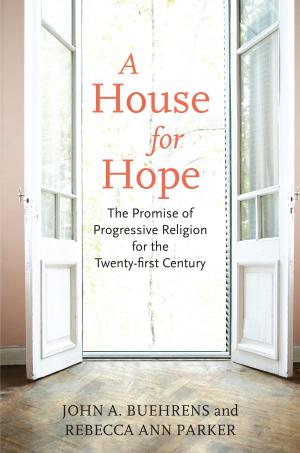Proverbs of Ashes
Violence, Redemptive Suffering, and the Search for What Saves Us
Nonfiction, Religion & Spirituality, Theology, Christianity, Christian Life, Social & Cultural Studies, Social Science| Author: | Rita Nakashima Brock, Rebecca Ann Parker | ISBN: | 9780807067888 |
| Publisher: | Beacon Press | Publication: | June 23, 2015 |
| Imprint: | Beacon Press | Language: | English |
| Author: | Rita Nakashima Brock, Rebecca Ann Parker |
| ISBN: | 9780807067888 |
| Publisher: | Beacon Press |
| Publication: | June 23, 2015 |
| Imprint: | Beacon Press |
| Language: | English |
Rebecca Parker was a young minister in Seattle when a woman walked into her church and asked if God really wanted her to accept her husband's beatings and bear them gladly, as Jesus bore the cross. Parker knew, at that moment, that if she were to answer the woman's question truthfully she would have to rethink her theology. And she would have to think hard about some of the choices she was making in her own life.
When Rita Nakashima Brock was a young child growing up in Kansas, kids taunted her viciously, calling her names like "Chink" or "Jap." She learned to pretend that she did not feel the sting of scorn and the humiliation of contempt. The solitude and silence of her suffering-decreed by both her mother's Japanese culture and her father's Christian heritage-kept the wound alive.
It was the gap between knowledge born of personal experience and traditional theology that led Rita Brock and Rebecca Parker to write this emotionally gripping and intellectually rich exploration of the doctrine of the atonement. Using an unusual combination of memoir and theology in the tradition of Augustine's Confessions, they lament the inadequacy of how Christian tradition has interpreted the violence that happened to Jesus. Ultimately, they argue, the idea that the death of Jesus on the cross saves us reveals a sanctioning of violence at the heart of Christianity.
Brock and Parker draw on a wide array of intimate stories about family violence, the sexual abuse of children, racism, homophobia, and war to reveal how they came to understand the widespread damage being done by this theology. But the authors also undertake their own arduous and unexpected journeys to recover from violence and to assist others to do so. On these journeys they discover communities that begin to give them the strength to question the destructive ideas they have internalized, and the strength to seek out an alternative vision of Christianity, one based on healing and love. Proverbs of Ashes is both a condemnation of bad theology and a passionate search for what truly saves us.
Rebecca Parker was a young minister in Seattle when a woman walked into her church and asked if God really wanted her to accept her husband's beatings and bear them gladly, as Jesus bore the cross. Parker knew, at that moment, that if she were to answer the woman's question truthfully she would have to rethink her theology. And she would have to think hard about some of the choices she was making in her own life.
When Rita Nakashima Brock was a young child growing up in Kansas, kids taunted her viciously, calling her names like "Chink" or "Jap." She learned to pretend that she did not feel the sting of scorn and the humiliation of contempt. The solitude and silence of her suffering-decreed by both her mother's Japanese culture and her father's Christian heritage-kept the wound alive.
It was the gap between knowledge born of personal experience and traditional theology that led Rita Brock and Rebecca Parker to write this emotionally gripping and intellectually rich exploration of the doctrine of the atonement. Using an unusual combination of memoir and theology in the tradition of Augustine's Confessions, they lament the inadequacy of how Christian tradition has interpreted the violence that happened to Jesus. Ultimately, they argue, the idea that the death of Jesus on the cross saves us reveals a sanctioning of violence at the heart of Christianity.
Brock and Parker draw on a wide array of intimate stories about family violence, the sexual abuse of children, racism, homophobia, and war to reveal how they came to understand the widespread damage being done by this theology. But the authors also undertake their own arduous and unexpected journeys to recover from violence and to assist others to do so. On these journeys they discover communities that begin to give them the strength to question the destructive ideas they have internalized, and the strength to seek out an alternative vision of Christianity, one based on healing and love. Proverbs of Ashes is both a condemnation of bad theology and a passionate search for what truly saves us.















